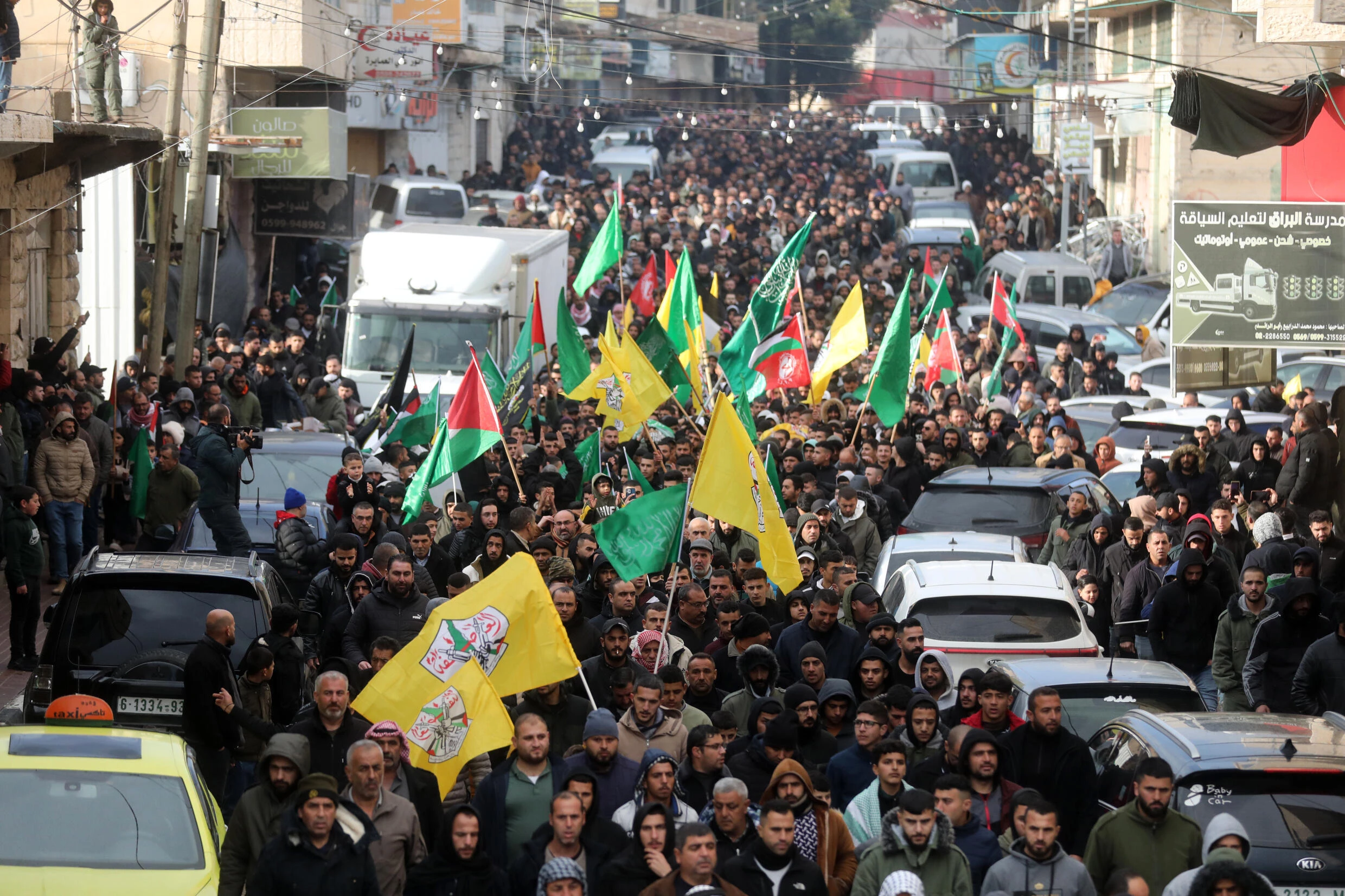Fear of Israeli incursions looms in quiet West Bank town

Stay tuned with 24 News HD Android App

Fear stalks the usually quiet Palestinian small town of Dura in the occupied West Bank, which has seen a rise in Israeli military operations since the Gaza war broke out.
Shaken by several violent deaths, the 48,000 people of the town west of Hebron always wonder when the next army raid will come, said its mayor Muhannad Amro.
"We don't know when it will happen nor what will happen," he told AFP. "We can only stay out of the way" of the soldiers and "stay away from windows", he said.
Deadly violence has flared across many parts of the West Bank since the worst ever Gaza war broke out following Hamas's October 7 attack on southern Israel.
More than 420 people have been killed by Israeli forces or settlers across the West Bank, according to the health ministry in Ramallah.
The Israeli army did not respond to questions from AFP about several recent deaths in Dura.
Amro said that in the past, life was usually "quiet" in Dura, a town not known as a bastion of armed Palestinian groups, but that this had given way to "fear" among its people.
Dura is located in the West Bank's so-called Area A, which theoretically falls under the Palestinian Authority's jurisdiction and where Israeli forces are not supposed to deploy.
But now, said Amro, "all of the town's entrances and exits are through checkpoints" set up by the Israeli army.
The army has led frequent "anti-terrorist operations" in Dura in the months since October 7, when Hamas's attack left about 1,160 dead, mostly civilians, according to an AFP count based on official Israeli figures.
Israel's devastating retaliatory offensive in the Gaza Strip has killed 30,717 people so far, mostly women and children, according to the health ministry in the Hamas-ruled territory.
'Without a reason to live'
According to Dura's city hall, eight people have been killed in the town -- some during confrontations with the Israeli army, but also including an unarmed young woman who was standing on a roof.
Ahed Mahmoud Mohammed, 20, the mother of a girl less than one year old, was killed on January 15 after Israeli soldiers fired several bullets that struck her in the head, according to Palestinian authorities.
She was standing on the roof of a house, her relatives said, to call out to her husband "so he could come home and avoid any harm from the army".
Her bereaved sister Sumud Amter said that, since her death, "the sadness feels like it will never leave me".
The widower, Bahaa Al-Masalmeh, 27, said that now he feels like he is "here without being here... without a reason to live".
As he spoke, their daughter Ayloul, in pristine baby clothes, sat on his knees playing with his car keys.
Bahaa's father, Sami Ahmed Al-Masalmeh, said he feels a "very deep anger". Israel, he said, wants "to bring us to our knees, but we love life and we keep our heads high".
'Fear of death'
The mayor said that the tensions in Dura means that the local economy, "which already wasn't doing great, is at a standstill".
"Schools are doing classes remotely, some employees don't want to leave their homes because they do not want to cross checkpoints," he added.
Bahaa Abu Ras, 36, who runs a mobile phone shop, recalled an incident in which he claimed he was used as a human shield by the Israeli army.
He said soldiers came to his shop to ask whether he sold drones.
Then, he said, he was struck and forced to walk ahead of the soldiers, a gun to the back of his head, as they sought to avoid being targeted while returning to their jeeps.
"I still can't believe it, the fear of death has stuck with me since," the father of four said, afraid that such an incident may happen to him "again, at any moment".
The Israeli army did not respond to questions about Mohammed, the woman who was shot on the roof, or about Abu Ras, when contacted by AFP.
But it said it "categorically rejects the idea that it may have used a 'human shield'".
According to Palestinian authorities, tens of people have been wounded, some severely, during incursions in Dura.
Paramedics said that they too had been targeted by gunfire on several occasions.
"We don't have weapons, we want to live in our home," said a town resident, who declined to give his name for security reasons.
"We're just normal human beings, is that so difficult to understand?"
